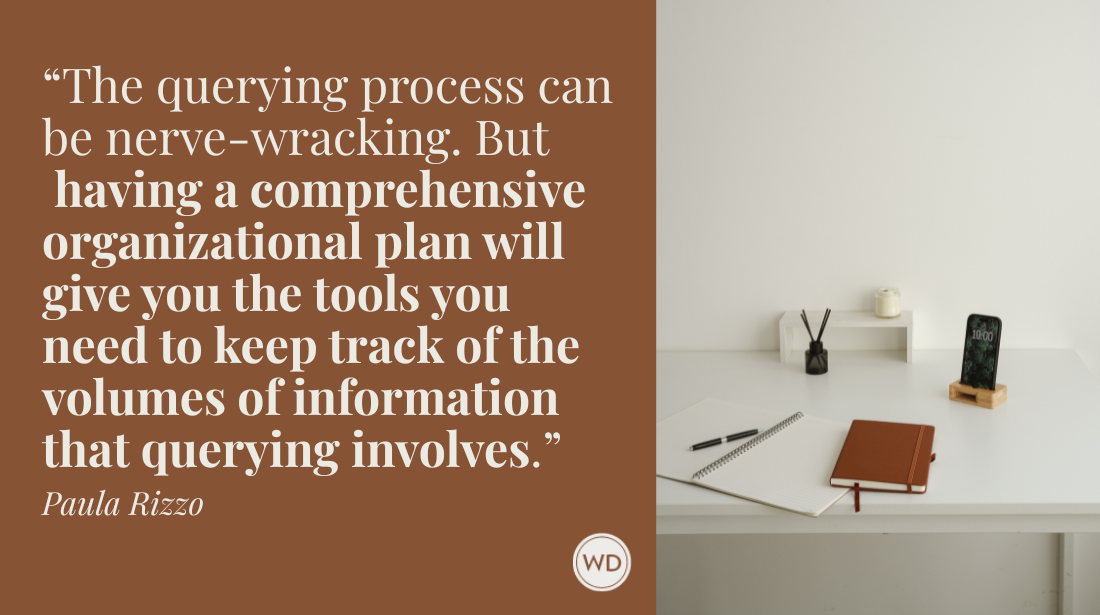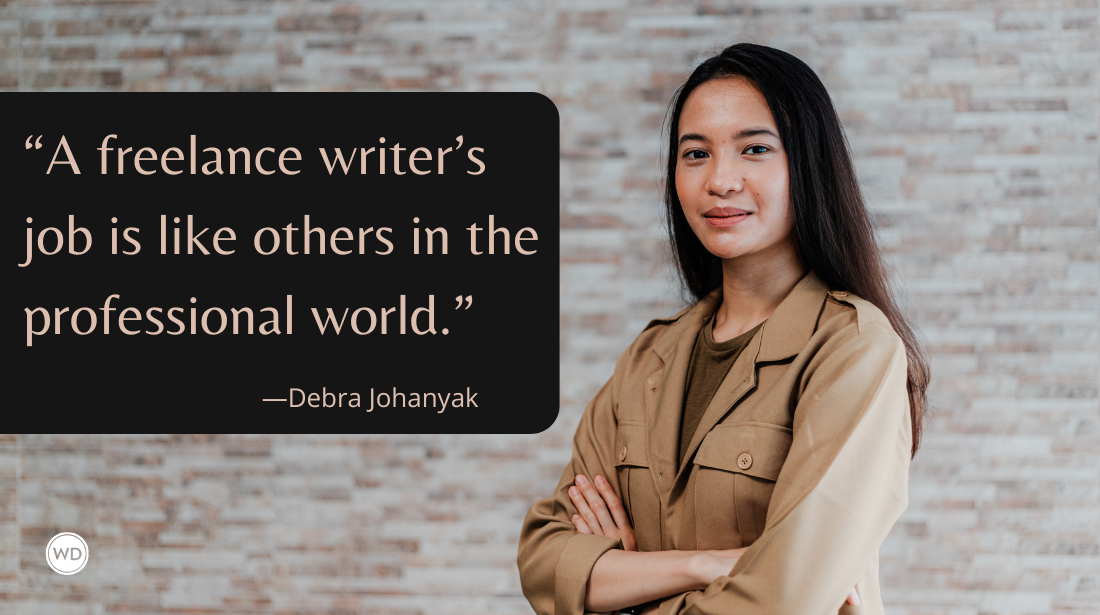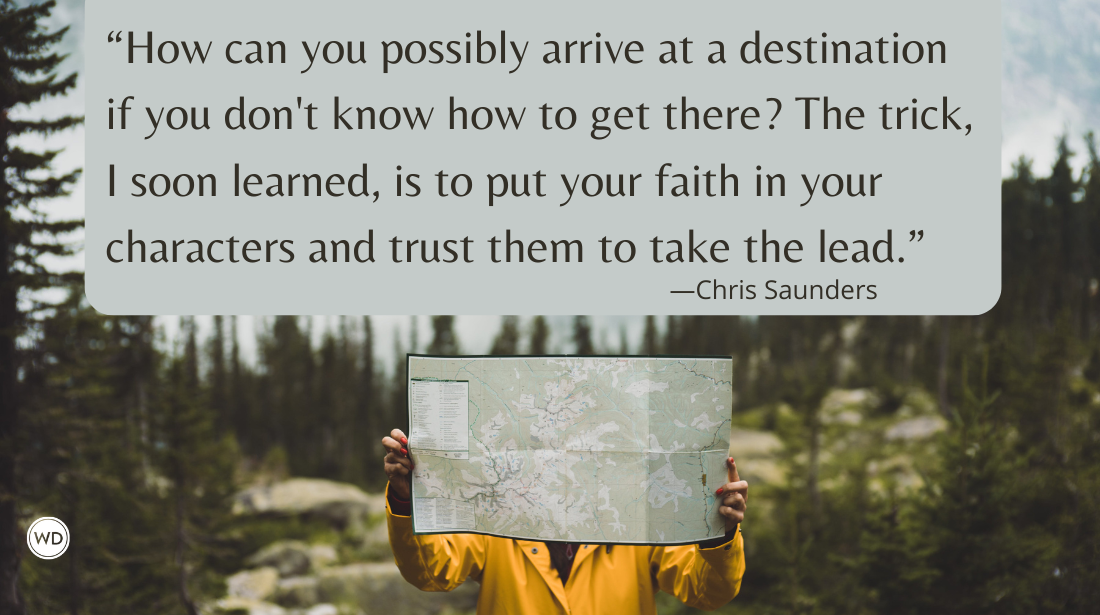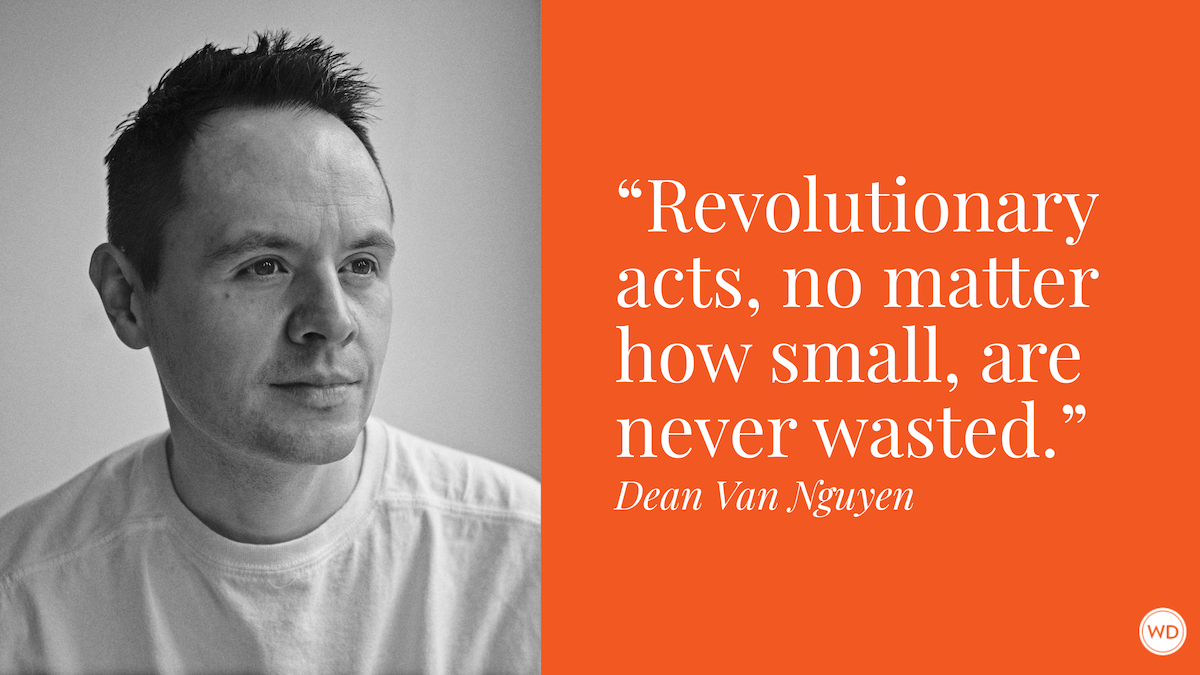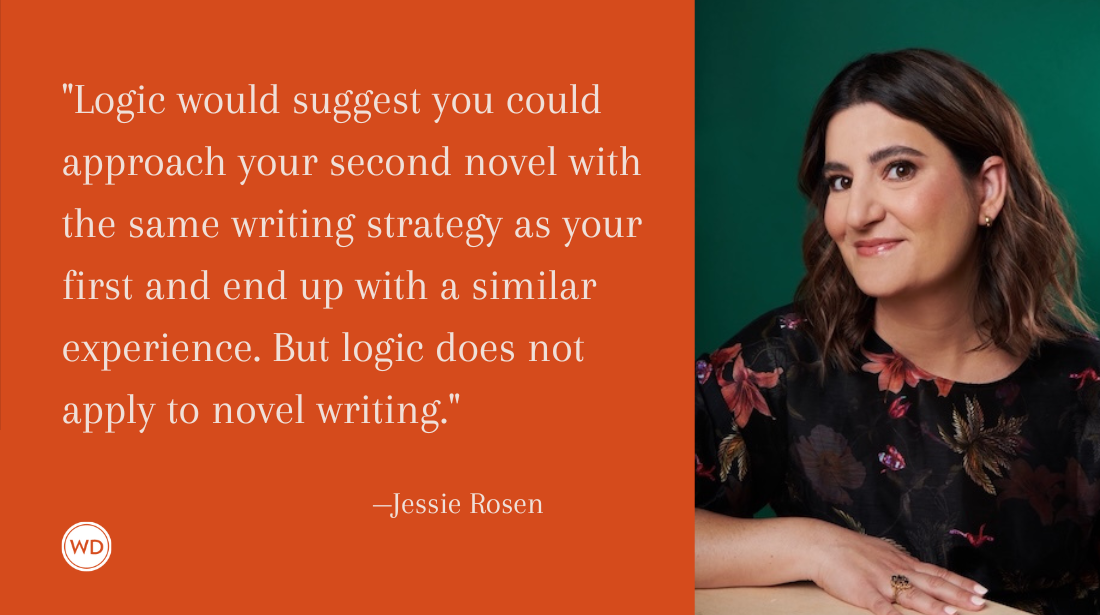Writers & Publishers Need to Act More Like the Art World
Today’s Q&A is with Dan Holloway, who I first met on Twitter as agnieszkasshoes. Dan is a founder-member of Year Zero Writers, and curator of eight cuts gallery and eight…
Today's Q&A is with Dan Holloway, who I first met on Twitter as agnieszkasshoes. Dan is a founder-member of Year Zero Writers, and curator of eight cuts gallery and eight cuts gallery press. I was very intrigued by the new publishing operation he's launched, eight cuts gallery press, and asked him some questions about how it'll work.
--
Okay, let's start from the top. You're starting a press called eight cuts gallery that focuses on contemporary urban fiction (sorry to categorize!).
You only want submissions from writers who buy into what you're doing—which involves not profiting a penny from the books you publish. (Authors take all money from sales of eight cuts editions.)
Wouldn't making money from the press allow you to spend more of your time on it? Or employ others to help?
First, the key to what I'm doing is in the gallery part of the name. What literature needs now is what art had in the late 80s and early 90s (I hope this isn't too British—I'd urge people to Google "Young British Art").
We need chutzpah. We need the larger than life curators like Nick Serota and Jay Jopling, we need the equivalent of the Turner Prize (not the Pulitzer or the Booker), an event like the Sensation exhibition. We need a watercooler-WTF-is-that moment. I blogged about this last year, but I really haven't seen anything that fits the bill.
So that's where eight cuts gallery, and eight cuts gallery press come in. To clarify the relation between the two, eight cuts gallery is the umbrella that encompasses a virtual and real literary gallery that will focus on highly curated events (submissions have almost closed for our first, Into the Desert); two prizes, the Chris Al-Aswad Prize for outstanding contribution to breaking down barriers in the arts and the eight cuts gallery prize for best literary "thing" of the year; and eight cuts gallery press.
The aim is to locate a press within a movement, and for everything that's part of that movement to be focused around our mission statement: "eight cuts gallery exists to champion extraordinary literature from people you may never have been given the chance to encounter."
No problem to categorize—it's hard to describe what we're looking for without using categories—which is why I tell people who want to submit to look at our titles, the feel of our site, and our blogroll. It's about a feel.
For the record, it's not just fiction. We do poetry, and I'm not ruling out essays.
By buying into what we do I don't just mean the financial stuff. I mean the whole culture—for example, people for whom writing is confessional—that's a really big thing—not autobiographical but confessional. And serious.
There's a whole wave of new, exciting literature that's really livening things up, and is led by things like Literary Death Match, and it's great, but it's very humor-centric and there's a real danger that can come at the price of being superficial.
I want writers who look inside themselves and scrape whatever stinking, complicated, messed up thing they find there onto the page. One of our first authors, Cody James, said, "Maybe there is no way for us to leave the world a better place, and all we can do is tell the truth."
I DO want it on record, though, that we are categorically NOT the literary equivalent of prog rock.
The gallery I very much hope WILL make money, from live shows and merchandise. I'd also like to think if I do my job well, what I'm doing is new enough that I might get asked to write and talk about it. So, I DO hope to make money, bu not through my writers. I will be bringing one, maybe two, of my own books out though—IF they are good enough. My first novel, Songs from the Other Side of the Wall, has had some great reviews, but it's not good enough, so I won't be putting it through the press.
You're giving all authors an equal share of any profits that the press happens to earn. So any money that the press takes: it will be only to cover costs (and reduce out of pocket). Is that correct?
eight cuts gallery press will almost certainly make no profits aside from books—the profits on books, authors keep 100%. And yes, profits will be calculated very transparently in terms of the costs incurred in producing the books.
Where we need to advance money to outside parties, as part of the terms of being shortlisted for an award, we will revert to a 50/50 profit share until we have recouped the outlay.
But we MAY sell merchandise if it seems appropriate, and where that has the press label on it, money will go to the authors. Most of the profits will come through the gallery. That's where I'll make my money—authors and exhibitors will split their share.
?With eight cuts gallery, authors keep all rights, meaning authors may walk away at any time. However, you plan to offer assistance to authors to negotiate rights with third parties, and not take a commission when doing so. This sounds generous! And like a lot of work! Thoughts?
This is almost certainly very naive, and IF we make it out of the starting blocks, I will almost certainly get burned on it from time to time, but what I think people need to remember is that the literary world I want to tap into is first and foremost a movement, not a business. It's a community bound together by a certain set of cultural ideals, and antecedents, and a desire to shout about literature and get, for want of a better phrase, in the public's face to get them excited too.
But being a movement doesn't mean you were born yesterday—it just means that sometimes you realize it's for the greater good if you act like you were.
From a business point of view, as well, I think ultimately this makes sense because everything reflects on eight cuts gallery as a brand.
You've said you want to give the very best self-published works a chance to storm the major literary prizes that currently will not accept self-published novels. How will you find the best? Do you already know of these works through your own network, or do you expect people to discover your press through word of mouth and submit? Or ... ?
I very much DO want people to submit, but I started because there were particular works I loved so much I knew I wanted to devote myself to promoting them, and a couple of collections I knew would be ready next year.
I started Year Zero Writers as a meeting point for amazing independent authors of literary and independent fiction. Through the collective, our publicity, our live shows, and interaction on the web, I've met hundreds of incredible authors, come into contact with hundreds of networks, and tens of sites that are devoted to exceptional alternative/experimental works, and read thousands of manuscripts.
I have been very very lucky in whom I've met in the last year, and the way they've responded to what we do, so I'm very fortunate to have a network where I come into contact with an awful lot of the great stuff.
< br>There IS a danger that some of the self-publishing scene and the alternative fiction scene is quite introspective, but there are huge pools of talent out there once you click through a couple of times from the same old, same old. Look outward needs to be the watchword—get involved with local creative networks, put yourself up for live shows, support independent bookstores, work across the arts. Always ask "what else is there?"
Why aren't you attaching ISBNs to books? Would that eliminate any possibility of having the book distributed in major chain stores? (And also wondering if this will make it difficult to storm the major literary prizes?)
Yes, the reason for not attaching ISBNs is precisely to ensure the books aren't available in the chains. For a while (certainly since May last year when I wrote this, predicting the demise of chains like Barnes & Noble), I have genuinely struggled to understand the way books are sold. I can't think of a reason for book chains and ISBNs other than sentiment and "because that's how it's done."
We need small presses to come along and re-imagine it. I want to do what's best for the books, and best for the writers, and for me that means selling direct online (why do you need Amazon to sell alternative fiction? I mean, most of our readers think Amazon's the Antichrist so why?); at live shows and exhibitions (eight cuts gallery press is part of eight cuts gallery, built around exhibitions and live shows); and through direct deals with independent bookstores and other outlets like tattoo parlors and alternative lifestyle shops (my retail background is in the highest end luxury flooring, which is essentially a niche like alternative fiction. The way that worked was through networks of exclusive stockists—it works for the stockist and it works for the supplier. Our books aren't impulse buys, so why even consider the front tables at Waterstone's?).
I don't see an issue with prizes. To be honest, I don't think they've considered there might be books without ISBNs, they just consider self-publishing. I have a feeling it might blindside them. I am sure some will object, but that's publicity.
?How do you plan to market and publicize your authors in a way that would extend beyond the authors' own networks and marketing campaigns?
I love Twitter, so social media will play a role. Being part of a press that's doing something new will, I hope, also help us get column inches.
As is the case at Year Zero Writers, I very much believe in direct interaction with readers as the very best way to get the right people reading in the first place. Part of that’s online, but live events also matter—exhibitions in conjunction with eight cuts gallery, and reading nights. And as a group we can help our authors to get slots in some of the bigger shows. We can also promote our authors through prizes, and doing deals with suitable retail outlets.
?You say that your authors will never be associated with defamatory material, but that you plan to make a brouhaha. Elaborate?
By the former I simply mean that I'm not going to pull stunts that get our authors into legal trouble by saying, "At eight cuts gallery we believe …" I want to reassure people I'm not going to wind them in prison.
On the other hand, the literary world seriously needs more interventions and anarchy. There's so much incredible stuff going on underground—flyposting poems in public toilets and on bus shelters as an example—it's high time some of that went overground. That's what I'm alluding to with the "we're rats" manifesto on the eight cuts gallery homepage. Like I keep coming back to (do I keep coming back to it in this interview? I do in real life. Maybe this is the first time I've said it here), we need to act more like the art world.
For authors, eight cuts will target sales, publicity, appearance and alternative format possibilities. What networks/connections or experience do you have that will help you do this (beyond what an author would have)?
Shall I take those point by point? Hmm, probably best.
Alternative formats to start with. I absolutely believe books should come out in the formats to which they're most suited. That will depend book to book. There are lots and lots of possibilities, of course, and I want to encourage authors to think beyond e-books (not that I'm not happy to help format e-books).
Most of my contacts have come through Year Zero. For example, I've been introduced to the people behind Love Bunni Press and Geneva 13, who are two of the best zine producers. Others have come through our live shows, which has brought me into contact with a lot of people in the music industry, so I have access to some great studios to produce high quality audio books.
I also do a lot of work with visual artists—I'm the only writer on the Oxfordshire arts collectives network for example, which has brought me into contact with artists and printmakers who can work on one-offs and limited editions.
Appearances. At Year Zero we put together a highly enjoyable live tour earlier this year, and I promoted and produced the events, at venues as diverse as art galleries and record stores, as well as music venues and bookstores. We've also done slots at leading literary nights like The Literature Lounge, and in October we'll be doing Literary Death Match. We've also started being invited to literary festivals, and through my music contacts (and music journalism), I've got to know quite a few music festival promoters.
Sales and publicity. A lot of sales and publicity goes hand in hand with the above. I’ve also done a lot of work with people in the arts, which gives us access to mailing lists, to places that will stock our books, and where we can hold events. Likewise the music and festival scene.
My thanks to Dan for taking the time to answer my questions. (Pictured above: the first new releases from eight cuts.)
Dan Holloway's articles on publishing, short stories, poems, music and poetry
reviews, and papers on post-community Europe have appeared in print and
across the blogosphere. He is the author of Songs From the Other Side of the Wall (a novel), and the collection of stories and poems (life:) razorblades included, both available from his site.
Jane Friedman is a full-time entrepreneur (since 2014) and has 20 years of experience in the publishing industry. She is the co-founder of The Hot Sheet, the essential publishing industry newsletter for authors, and is the former publisher of Writer’s Digest. In addition to being a columnist with Publishers Weekly and a professor with The Great Courses, Jane maintains an award-winning blog for writers at JaneFriedman.com. Jane’s newest book is The Business of Being a Writer (University of Chicago Press, 2018).



